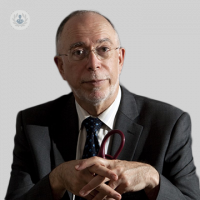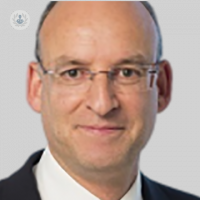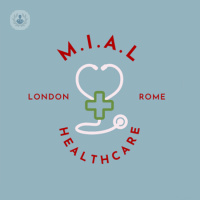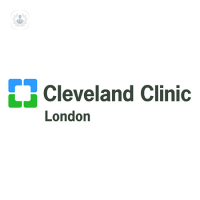What is cancer screening?
Cancer screening aims to detect cancers in their early stages and is carried out on people presumed to have no symptoms at all. Early detection improves the chances of treatment being successful and the chances of survival are better too. Some screening tests can prevent cancer from developing entirely, such as cervical screening.

What does cancer screening involve?
In the UK there are three national screenings available – for breast, bowel and cervical cancer.
Breast cancer screening uses a mammography to assess the breasts and to detect any abnormalities. Mammographies are able to detect small lumps that cannot be felt physically. The national breast screening programme is offered to women between 50-70 years of age every three years. If you are younger than 50 mammograms are not very reliable in detecting breast cancers, so if you arrange to have a screening, it is more likely that you will have an ultrasound instead.
Bowel cancer screening is offered to men and women in the UK between the ages of 60 and 74 years. This age group are sent a testing kit every two years. The kit is designed so that a stool sample can be easily taken and sent for examination. In addition, at age 55 you are invited for a bowel scope test as well.
Cervical cancer screening detects abnormal cell changes in the cervix which if left untreated can develop into cancer. A screening kit is used which takes a sample of cells from the cervix with a special brush. The sample is then sent to a laboratory to check for abnormalities and also HPV. Cervical screening is offered to women between the ages of 25 and 64 years. Women aged 25 to 49 years are screened every three years. From age 50, women are screened every five years.
If you have a strong family history of certain types of cancer, it is likely that your doctor will recommend you have several additional tests.
Why is cancer screening done?
Cancer screening can detect cancer or pre-cancerous abnormalities early on, allowing more successful treatment and survival rates. As a result, cancer screening saves thousands of lives every year.
If you are not eligible for screening, but you notice changes that are out of the ordinary, make an appointment with a doctor who can examine these changes and advise any necessary tests.
Cancer screening
Dr Luigi De Michele - Internal medicine
Created on: 06-17-2015
Updated on: 11-07-2023
Edited by: Sophie Kennedy
What is cancer screening?
Cancer screening aims to detect cancers in their early stages and is carried out on people presumed to have no symptoms at all. Early detection improves the chances of treatment being successful and the chances of survival are better too. Some screening tests can prevent cancer from developing entirely, such as cervical screening.

What does cancer screening involve?
In the UK there are three national screenings available – for breast, bowel and cervical cancer.
Breast cancer screening uses a mammography to assess the breasts and to detect any abnormalities. Mammographies are able to detect small lumps that cannot be felt physically. The national breast screening programme is offered to women between 50-70 years of age every three years. If you are younger than 50 mammograms are not very reliable in detecting breast cancers, so if you arrange to have a screening, it is more likely that you will have an ultrasound instead.
Bowel cancer screening is offered to men and women in the UK between the ages of 60 and 74 years. This age group are sent a testing kit every two years. The kit is designed so that a stool sample can be easily taken and sent for examination. In addition, at age 55 you are invited for a bowel scope test as well.
Cervical cancer screening detects abnormal cell changes in the cervix which if left untreated can develop into cancer. A screening kit is used which takes a sample of cells from the cervix with a special brush. The sample is then sent to a laboratory to check for abnormalities and also HPV. Cervical screening is offered to women between the ages of 25 and 64 years. Women aged 25 to 49 years are screened every three years. From age 50, women are screened every five years.
If you have a strong family history of certain types of cancer, it is likely that your doctor will recommend you have several additional tests.
Why is cancer screening done?
Cancer screening can detect cancer or pre-cancerous abnormalities early on, allowing more successful treatment and survival rates. As a result, cancer screening saves thousands of lives every year.
If you are not eligible for screening, but you notice changes that are out of the ordinary, make an appointment with a doctor who can examine these changes and advise any necessary tests.


Cancer treatment and hypnotherapy
By Dr Sarah Partridge
2024-12-19
Have you ever experienced hypnosis? In this latest article, we explain why this is likely to be the case and how hypnotherapy can be used in a clinical setting—to help support cancer treatment. Find out how hypnotherapy can be used to improve wellbeing. See more
Experts in Cancer screening
-
Professor Owen Epstein
GastroenterologyExpert in:
- Capsule endoscopy
- Cancer screening
- Irritable bowel syndrome (IBS)
- Virtual colonoscopy
- Digestive diseases
- Indigestion (dyspepsia)
-
Dr Vinay Sehgal
GastroenterologyExpert in:
- Acid reflux
- Barrett's oesophagus
- Irritable bowel syndrome (IBS)
- Endoscopy
- Cancer screening
- Digestive diseases
-
Dr Luigi De Michele
Internal medicineExpert in:
- Geriatric medicine
- Comorbidity
- Weight loss
- Clinical testing
- Chronic fatigue
- Cancer screening
-
Professor Martyn Caplin
GastroenterologyExpert in:
- Endoscopy
- Neuroendocrine tumours
- Cancer screening
- Irritable bowel syndrome (IBS)
- Coeliac disease
- Inflammatory bowel disease (IBD)
-
Dr Anshumen Bhagat
GP (general practitioner)Expert in:
- Health check up (health screening)
- Electrocardiogram
- Blood test
- Women's health
- Ultrasound
- Cancer screening
- See all

MIAL Medici Italiani A Londra
MIAL Medici Italiani A Londra
9 Harley Street, London
No existe teléfono en el centro.
By using the telephone number provided by TOP DOCTORS, you automatically agree to let us use your phone number for statistical and commercial purposes. For further information, read our Privacy Policy
Top Doctors

Cleveland Clinic Portland Place Outpatient Centre
Cleveland Clinic Portland Place Outpatient Centre
24 Portland Place, W1B 1LU
No existe teléfono en el centro.
By using the telephone number provided by TOP DOCTORS, you automatically agree to let us use your phone number for statistical and commercial purposes. For further information, read our Privacy Policy
Top Doctors

GI DOCTORS
GI DOCTORS
116 Harley Street, Marylebone, W1G 7JL
No existe teléfono en el centro.
By using the telephone number provided by TOP DOCTORS, you automatically agree to let us use your phone number for statistical and commercial purposes. For further information, read our Privacy Policy
Top Doctors
-
MIAL Medici Italiani A Londra
9 Harley Street, London , W1G Marylebone LondonExpert in:
- Cardiology
- Physiotherapy
- Internal medicine
- Neurology
- Otolaryngology
- Radiology
-
Cleveland Clinic Portland Place Outpatient Centre
24 Portland Place, W1B 1LU, Central LondonExpert in:
- Diagnosis of Cancer
- Diagnostics
- Women’s health
- Sports Medicine
- General practice
- Health check up
-
GI DOCTORS
116 Harley Street, Marylebone, W1G 7JL, W1G Marylebone LondonExpert in:
- Colorectal surgery
- Colonoscopy
- Inflammatory bowel disease
- Gastroenterology
- Hernia
- Irritable bowel syndrome
- Most viewed diseases, medical tests, and treatments
- Alzheimer's disease
- Cluster headaches
- Tension headache
- Chronic headache
- Migraine
- Autoimmune diseases
- Joint pain
- Nutrition
- Weight loss injections
- Abdominal pain







